Presented at “Power and Responsibility” 19th Annual Communication Graduate Caucus Conference, Carleton University, March 14-15, 2024.
Police in Canada are adopting true crime podcasting to influence public perceptions of policing and police work in response to increased scrutiny by activists and calls for transparency and accountability. However, their podcasts bypass an important element of ethical true crime storytelling: a critical examination of law enforcement and the criminal justice system. By using their authority and resources to control the narrative, police are engaging in “copaganda,” which is defined as media with a pro-police bias that minimizes the violence and trauma police cause to marginalized communities (Makim 2020; Corbett 2020). The lack of transparency and accountability in police podcasts works against established ethical practices to undermine public trust. As police embrace the popularity of true crime podcasting, their attempts to influence public conversations about policing and crime require closer scrutiny on behalf of both the podcasts’ subjects and the communities police claim to protect.
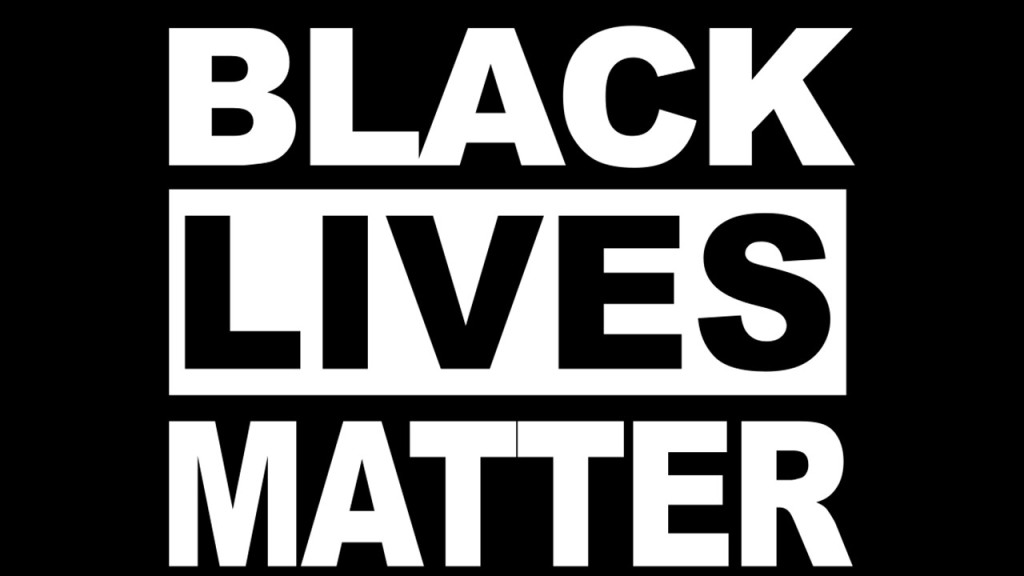
Police podcasts are being created at a time when policing in North America has been under sustained increased scrutiny. The Black Lives Matter movement was founded in July 2013 in response to the killing of 17-year-old Trayvon Martin in Florida and the subsequent acquittal of his shooter. The movement’s calls to action included a renewed push to “defund police departments and reinvest in Black communities that have suffered disproportionately from police brutality, unequal treatment in criminal justice systems and mass incarceration” (Morrison 2023). The phrase “Black Lives Matter became a rallying cry for protestors in August 2014 following the death of 18-year-old Michael Brown at the hands of police in Ferguson, Missouri, and George Floyd’s murder by Minneapolis police in 2020 launched protests across the U.S. and Canada (Morrison 2023).
In the backlash to BLM, the counter movements #BlueLivesMatter and #AllLivesMatter spread across North America in 2014. These movements frame Black Lives Matter as an attack on police and falsely blame Black crime for the collapse of society (Smith 2017). Alongside this movement, police officers in Canada and the United States began to wear “Thin Blue Line” and Punisher badges as symbols of solidarity and support with other police (Campbell 2020).
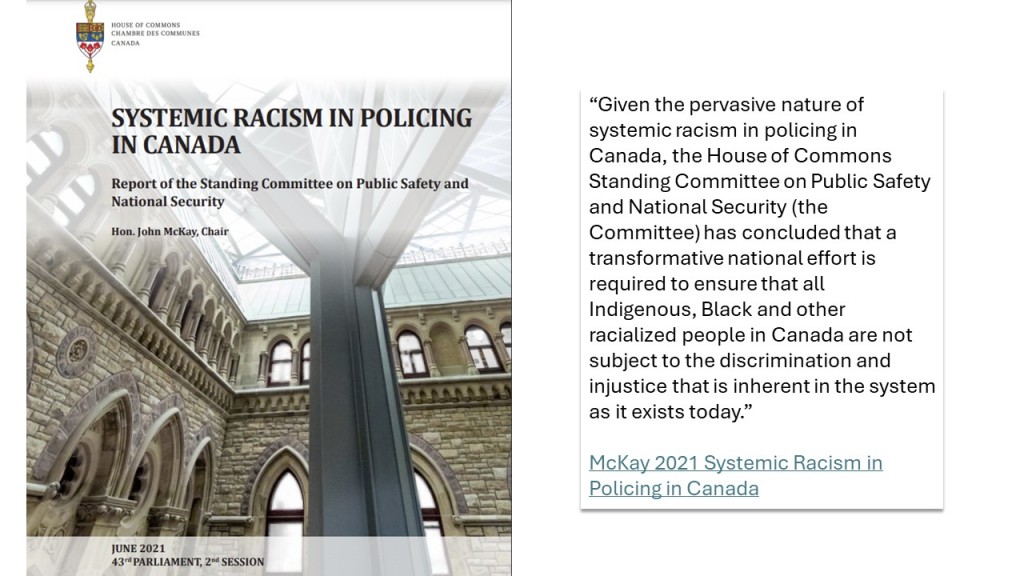
While the BLM movement originated in the U.S., police in Canada are not exempt from criticism. According to Statistics Canada, fewer than one in five Canadians felt that local police were doing a good job on all six measures of policing in 2020 (Ibrahim 2020). Further reports indicate that one in five Black people in Canada are not confident in police and 29% of Black people under 40 felt that police were “doing a poor job treating people fairly” (Cotter 2022). Mistrust in police is also evident among First Nations people, Métis, and Inuit, since police have historically been used to implement colonization practices (Cotter 2022). Systemic racism in policing in Canada is described as “pervasive” by the Standing Committee on Public Safety and National Security, which has concluded that “a transformative national effort is required to ensure that all Indigenous, Black and other racialized people in Canada are not subject to the discrimination and injustice that is inherent in the system as it exists today” (McKay 2021).
It is within this context that Toronto Police Services (TPS) launched their audio and video podcast 24 Shades of Blue on November 12, 2020. According to internal documents obtained through FOIA, the original stated goal of the podcast was to “promote community engagement by reaching a different audience which is not achieved through traditional media channels” (Coxon 2020). The podcast company Obie & Ax was selected as producer to mitigate the risk of the podcast being seen as “copaganda” (Coxon 2020). According to police memos, the podcast’s audience is mostly male and within the age group of 18-34 years and the podcast has also been popular with TPS members and their families (Gray 2021). Episodes include a variety of on-location and in-studio interviews with TPS officers and administrators, as well as police college staff. The show has had two true-crime series, “Missing Persons Edition” (six episodes) and “Cold Case Edition” (10 episodes) in its first two seasons. The podcast is now in its third season and has 58 episodes listed on Apple Podcasts.
(While I won’t be discussing them here for the sake of time, the Victoria City Police Union and the Saskatoon Police Services have both released true crime podcast episodes in the last year.)
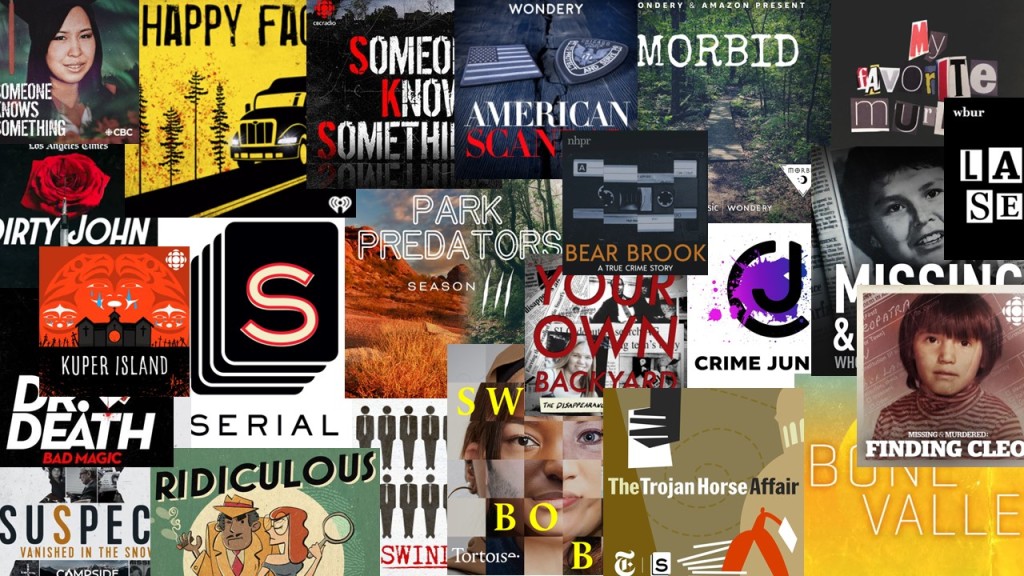
The TPS podcast draws in part on the true crime genre, which has now become the most popular podcast genre in North America (Stocking et al. 2023). When told in audio form, true crime creates an intimate connection between police authorities and listeners at home, linking the criminal and domestic spheres and representing police as the agents of social order (Battle and Keeler 2022). Listening to crime stories reinforces what we believe about law enforcement, who we should fear, and who we should empathize with (Locke 2020; Donovan and Klahm 2015).
Unlike radio or television, true crime podcasts can be made by anyone who wishes to examine crimes from new perspectives or to draw attention to previously overlooked cases (Battle and Keeler 2022). True crime podcasts may show the reporter wrestling with the ethical obligations of journalism and objectivity, or they may follow a more documentary storytelling approach that allows the producer to shape the story in a way that persuades the listener to a particular perspective (Price 2022; Keeler 2021; Horeck 2019). True crime podcasters rely on existing news reporting and online sleuthing (sometimes of dubious quality), to build a narrative of the crime, but they tend towards a justice-centred model demonstrating the inclusive, complex, and nuanced nature of crime and interrogating the criminal justice system (Battle and Keeler 2022). These narratives help listeners make connections between individual cases and ask bigger questions about societal institutions (Horeck 2019). While true crime relying on police records tends to oversimplify complex cases and present the detective as the hero (Locke 2020), ethical true crime resists the easy stereotypes of good vs. bad and leads listeners to consider the wider web of societal forces at play (Horeck 2019). True crime storytelling can create a nuanced narrative that challenges stereotypes of victimhood, gender and misogyny.
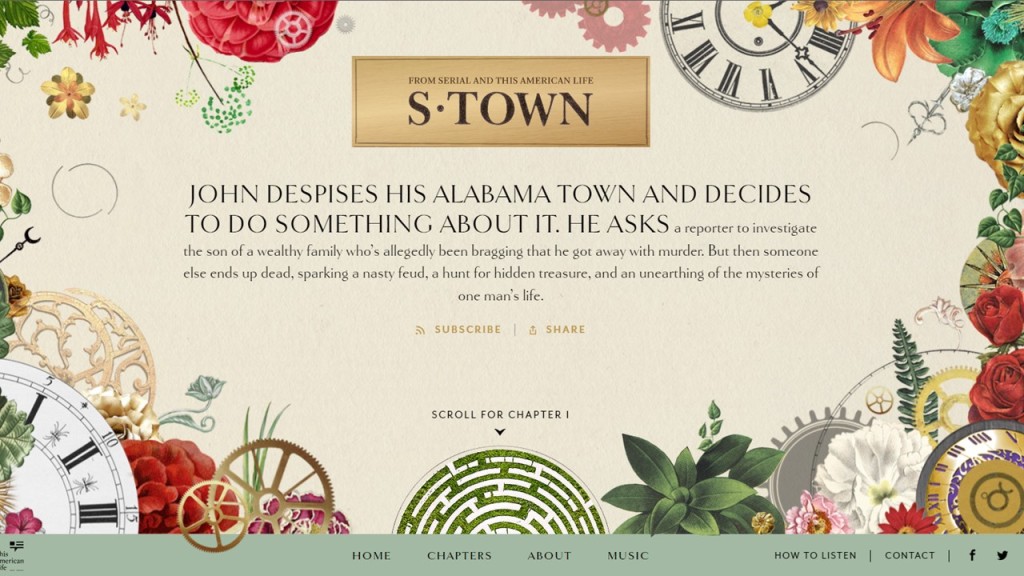
True crime stories can put those involved at risk of unintended consequences. The fame and notoriety that can follow victims, suspects, perpetrators, and their families long after publication has consequences for their privacy, their careers, their communities, and even their lives. The popularity of the podcast S-Town, for example, led to increased awareness of mental health and suicide (Powell 2021). But in telling John McLemore’s story, the S-Town team brings his friends, family, and community into the spotlight as well. Tyler Goodson expressed frustration of fame with no money and told Esquire that fans show up unexpectedly at the home he shares with his family (Storey 2018). The podcast led to lawsuits by McLemore’s estate against the producers of S-Town (Maddaus 2020) and Goodson, whose life began to unravel in the aftermath, was killed in a police standoff in 2023 (Helmore 2023). Terra Newell, famous for killing “Dirty John,” and Collier Landry, who witnessed his father kill his mother, have both spoken about the ongoing trauma of surviving crime and having their stories told by others on the podcast Life After MLM (episodes 194 and 196). These examples highlight the importance of carefully considering how true crime is told, who tells it, and what consequences can come from it.
Not every podcast is journalism and nor should they be (McHugh 2022). But police podcasting exploits both the intimacy of the medium and the authority of law enforcement to bypass the scrutiny usually provided by journalists. As podcast listeners, we need to hold police accountable for their messaging and the influence it has on public opinion, government decisions and society more broadly. As a powerful societal institution, the police need to hold themselves to a high ethical standard, engaging in transparent and ethical communications that build trust with the public. The police may say that they are podcasting these true crime stories to help solve them, and perhaps that is their genuine intention. But they need to openly recognize and address the complex ethical issues at play before they use their authority and power to co-opt vulnerable citizens’ stories for public relations.

Acknowledgements
This research is funded through a New Frontiers in Research Fund grant from the Social Sciences and Humanities Research Council (SSHRC) on disinformation, toxicity, and social media held by Drs Aaron Mauro (Associate Professor of Digital Media), Heather Ramey (Assistant Professor of Child and Youth Studies), Renata Dividino (Assistant Professor of Computer Science), and Ali Emami (Assistant Professor of Computer Science) at Brock University. Read more.
Works Cited
Battles, Kathleen, and Amanda Keeler. 2022. “True Crime and Audio Media.” In Routledge Companion to Radio & Podcast Studies, 188–97.
Blevins, Roberta. n.d. “Episode 194: Terra Newell.” Life After MLM. Podcast. https://podcasts.apple.com/us/podcast/episode-194-terra-newell/id1553784236?i=1000631362097.
Blevins, Roberta. n.d. “Episode 196: Collier Landry.” Life After MLM. Podcast.
Corbett, Erin. 2020. “Copaganda: A Look Into The Subversive Ways Police Ask For Sympathy.” July 1, 2020. https://www.refinery29.com/en-us/2020/07/9887229/copaganda-police-propaganda-protests-meaning.
Cotter, Adam. 2022. “Perceptions of and Experiences with Police and the Justice System among the Black and Indigenous Populations in Canada.” Statistics Canada. https://www150.statcan.gc.ca/n1/pub/85-002-x/2022001/article/00003-eng.htm.
Coxon, Shawna. 2020a. “Obie & Ax Inc. Sole Source Explanation.” Toronto Police Services. Internal memo.
———. 2020b. “Proposal for a Toronto Police Service (Service) Podcast.” Toronto Police Services. Internal memo.
Donovan, Kathleen M., and Charles F. Klahm IV. 2015. “The Role of Entertainment Media in Perceptions of Police Use of Force.” Criminal Justice and Behaviour 42 (12): 1261–81. https://doi.org/10.1177/0093854815604180.
Gray, Meaghan. 2021. “Contract Extension for Podcast Services.” Toronto Police Services. Internal memo.
Helmore, Edward. 2023. “‘It’s Hell Being Famous’: Second Violent Death of Serial Podcast Character Raises Ethics Questions.” The Guardian, December 10, 2023, sec. US news. https://www.theguardian.com/us-news/2023/dec/10/s-town-serial-podcast-tyler-goodson-dead.
Horeck, Tanya. 2019. Justice on Demand: True Crime in the Digital Streaming Era. Wayne State University Press.
Ibrahim, Dyna. 2020. “Public Perceptions of the Police in Canada’s Provinces, 2019.” Statistics Canada, Canadian Centre for Justice and Community Safety Statistics. https://www150.statcan.gc.ca/n1/pub/85-002-x/2020001/article/00014-eng.htm.
Keeler, Amanda. 2021. “Listening to the Aftermath of Crime: True Crime Podcasts.” In Saving New Sounds: Podcast Preservation and Historiography, edited by Jeremy Wade Morris and Eric Hoyt, 124–34. University of Michigan Press. https://doi.org/10.3998/mpub.11435021.
Locke, Charley. 2020. “Do True Crime Podcasts Perpetuate the Myth of an Effective Criminal Justice System?” Nieman Lab (blog). June 16, 2020. https://www.niemanlab.org/2020/06/do-true-crime-podcasts-perpetuate-the-myth-of-an-effective-criminal-justice-system/.
Maddaus, Gene. 2020. “‘S-Town’ Podcast Producers Settle Lawsuit With Subject’s Estate.” Variety (blog). May 18, 2020. https://variety.com/2020/biz/news/s-town-podcast-producers-settle-lawsuit-with-subjects-estate-1234610011/.
Makim, Palika. 2020. “Copaganda: What It Is and How to Recognize It.” Teen Vogue. August 5, 2020. https://www.teenvogue.com/story/what-is-copaganda-explainer.
McHugh, Siobhan. 2017. “Why S-Town Invites Empathy Not Voyeurism.” The Conversation (blog). April 26, 2017. https://theconversation.com/why-s-town-invites-empathy-not-voyeurism-76510.
McHugh, Siobhan. 2022. The Power of Podcasting: Telling Stories Through Sound. Columbia University Press.
McKay, John. 2021. “Systemic Racism in Policing in Canada: Report of the Standing Committee on Public Safety and National Security.” House of Commons, Government of Canada.
Morrison, Aaron. 2023. “Black Lives Matter Movement Marks 10 Years of Activism and Renews Its Calls to Defund the Police.” AP News, July 13, 2023, sec. Race and Ethnicity. https://apnews.com/article/black-lives-matter-10th-anniversary-trayvon-martin-c2d79ae4639934ca1eb77d6b54c16f8b.
Powell, Jacob. n.d. “Four Years Later: How ‘S-Town’ Impacted an Alabama Town.” The Crimson White (blog). Accessed January 25, 2024. https://thecrimsonwhite.com/81232/top-stories/four-years-later-how-s-town-impacted-an-alabama-town/.
Price, Neroli. 2022. “Can True Crime Podcasts Make Structural Violence Audible?” In The Routledge Companion to Radio and Podcast Studies, edited by Mia Lindgren and Jason Loviglio. Abingdon, Oxon ; Routledge. https://doi.org/10.4324/9781003002185.
Rieti, John. 2023. “Toronto Police Spending $337K on a Podcast to Avoid Perception They’re Making ‘copaganda’ | CBC News.” CBC. February 14, 2023. https://www.cbc.ca/news/canada/toronto/tps-podcast-costs-revealed-1.6746905.
Smith, David. 2017. “The Backlash against Black Lives Matter Is Just More Evidence of Injustice.” The Conversation, October 31, 2017. http://theconversation.com/the-backlash-against-black-lives-matter-is-just-more-evidence-of-injustice-85587.
Stocking, Galen, Katerina Eva Matsa, Sarah Naseer, Christopher St. Aubin, Elisa Shearer, Mark Jurkowitz, and Shreenita Ghosh. 2023. “A Profile of the Top-Ranked Podcasts in the U.S.” Pew Research Centre. https://www.pewresearch.org/journalism/2023/06/15/a-profile-of-the-top-ranked-podcasts-in-the-u-s/.
Storey, Kate. 2018. “‘It’s the Same Old Sh*t Town’: Tyler Goodson Explains How S-Town Changed His Life.” Esquire. May 10, 2018. https://www.esquire.com/entertainment/a19876579/s-town-podcast-tyler-goodson-one-year-later/.
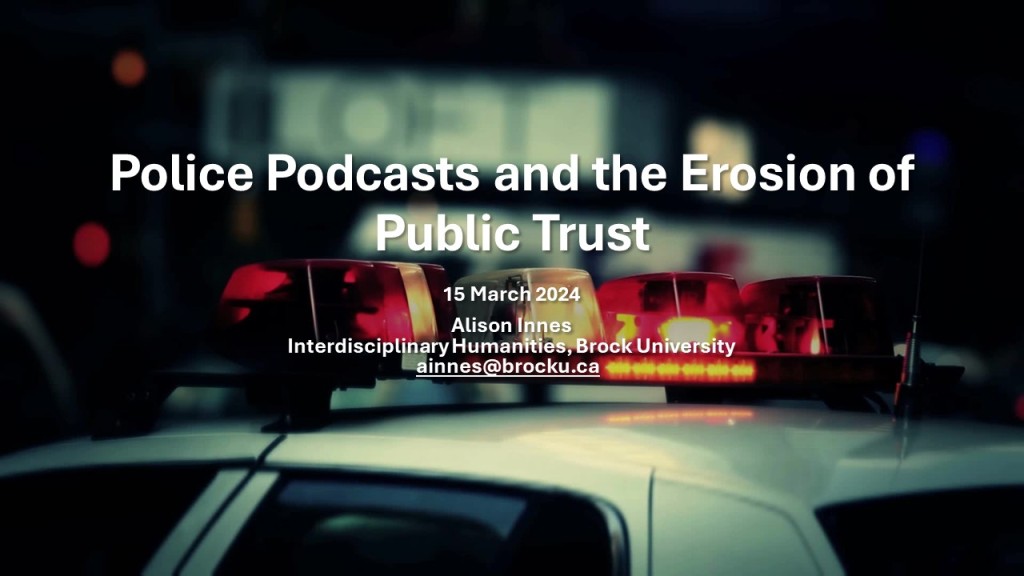

Leave a comment